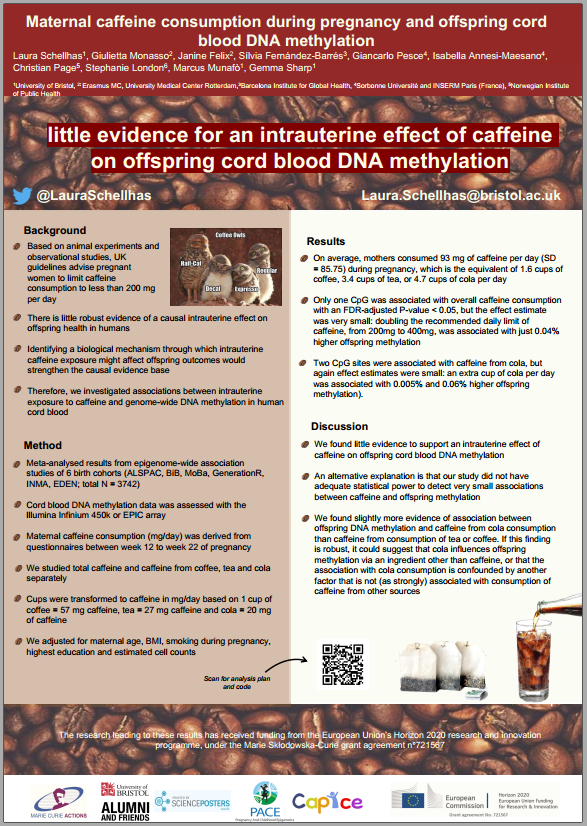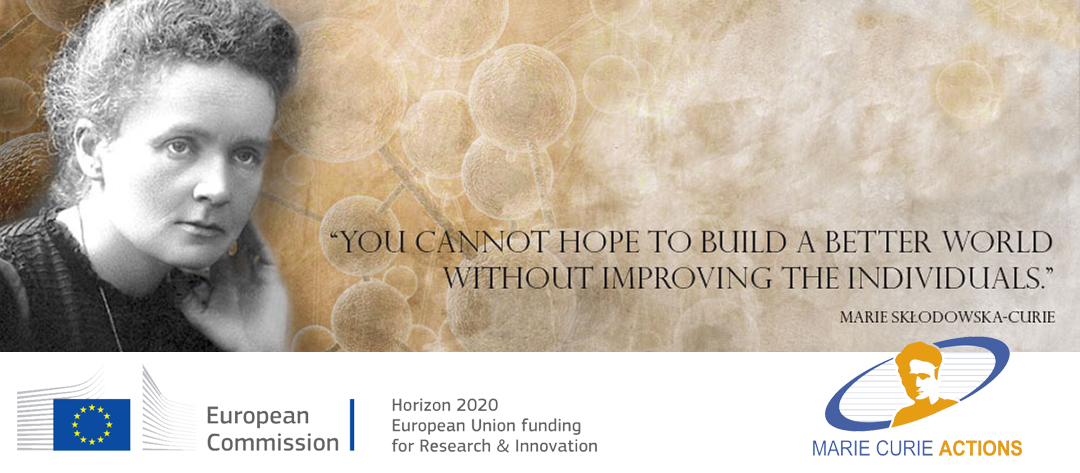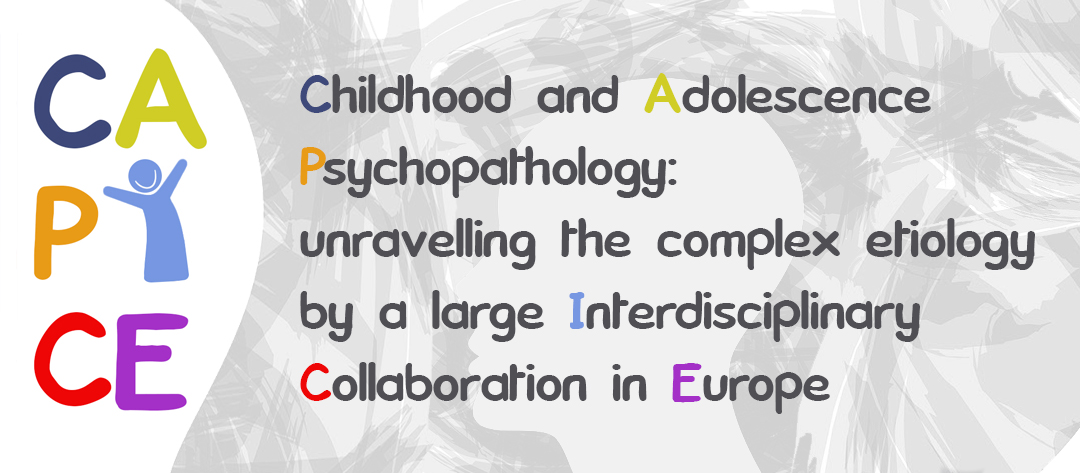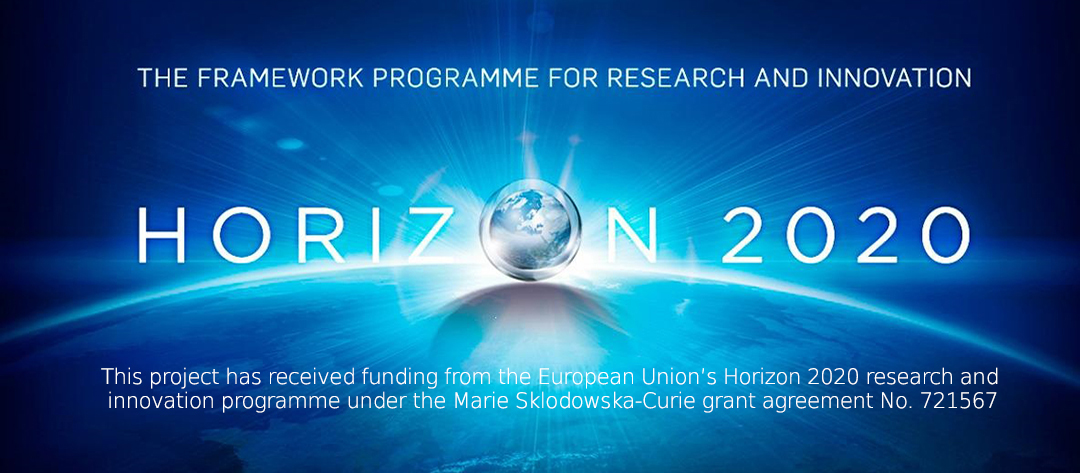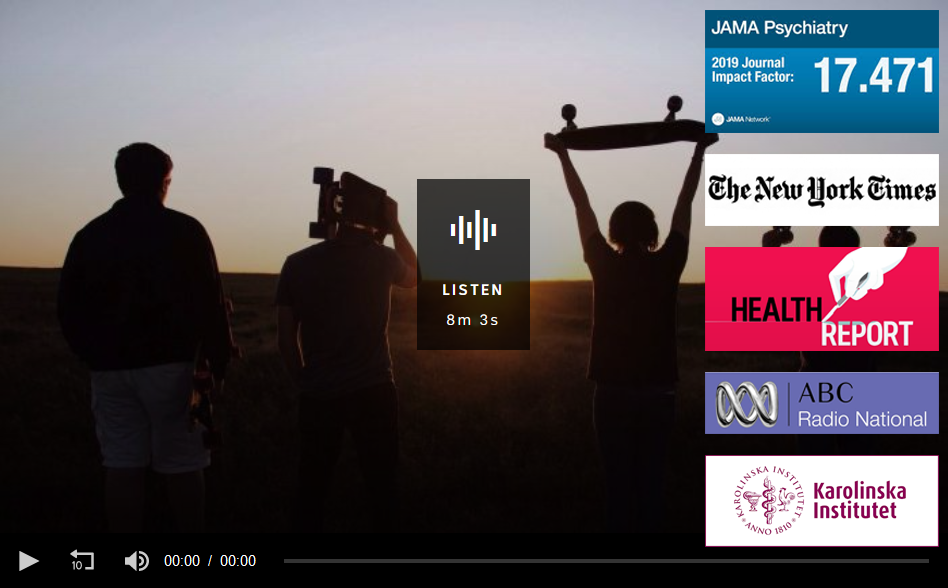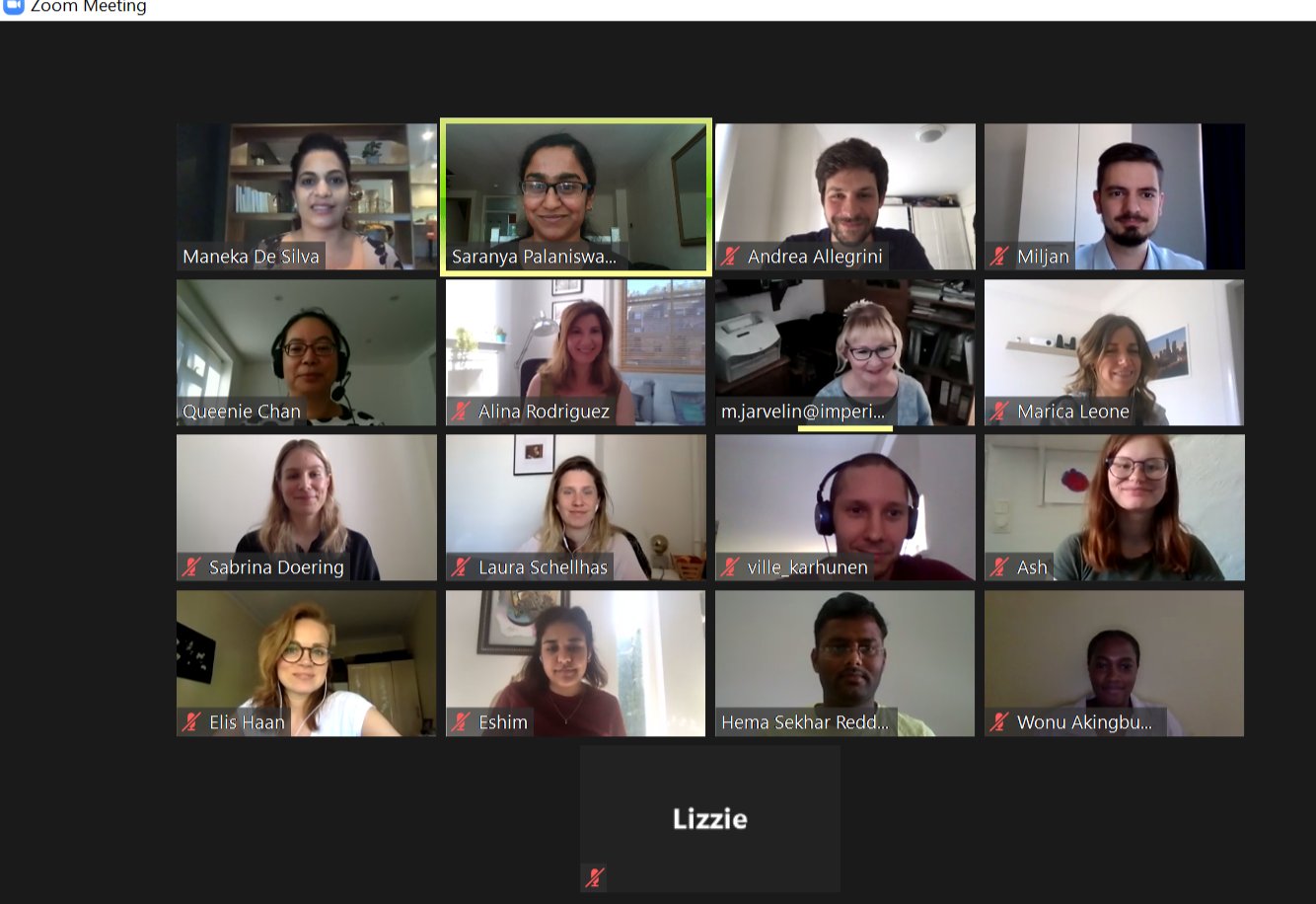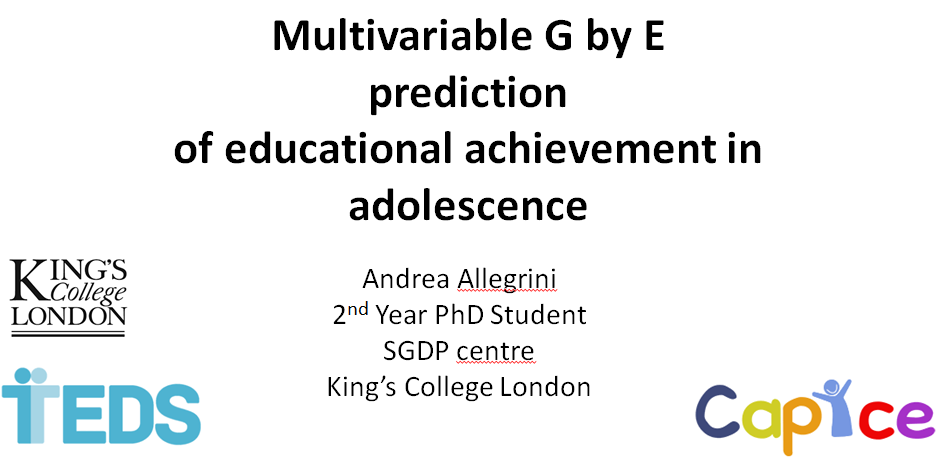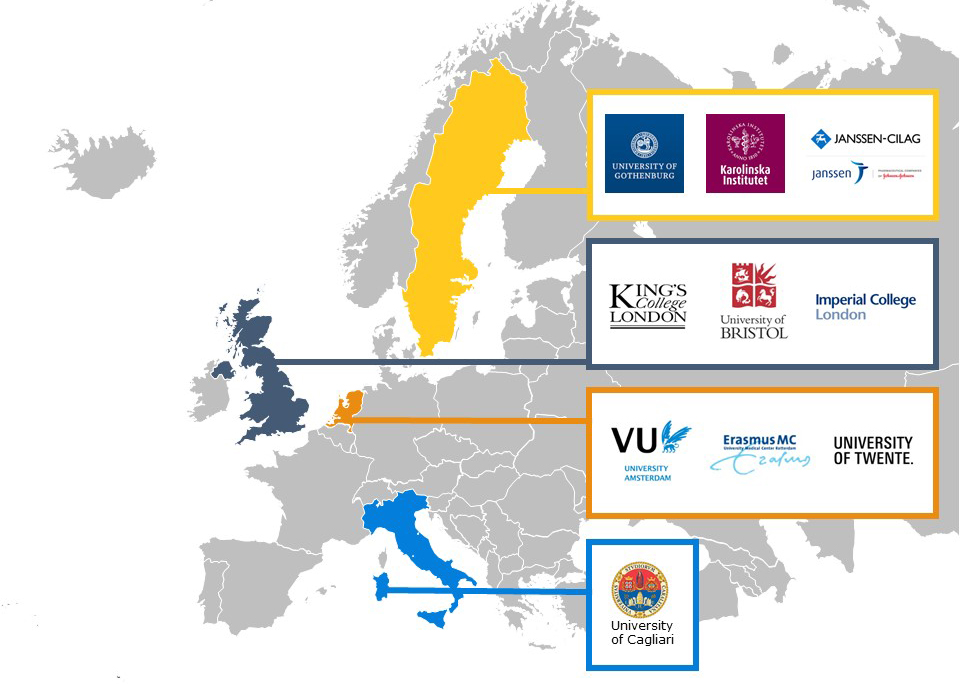This article contains information on two posters. 1. "Phenome-wide association study of caffeine PRS and mental health outcomes across the lifespan using the ALSPAC pregnancy cohort", 2. "Maternal caffeine consumption during pregnancy and offspring cord blood DNA methylation" presented by Laura Schellhas, ESR in the CAPICE project, at the Developmental Origins of Health and Disease (DOHaD) conference in Melbourne, Australia, 20-23 October, 2019.

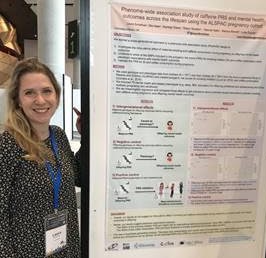
POSTER 1: "Phenome-wide association study of caffeine PRS and mental health outcomes across the lifespan using the ALSPAC pregnancy cohort"
Objectives
We applied a cross-generational approach to a phenome-wide association study (PheWAS) design to:
1) Investigate the intra-uterine effect of maternal smoking and caffeine consumption during pregnancy on offspring mental health outcomes
2) Explore whether the SNPs included in the polygenic risk score (PRS) for smoking initiation (SI) and coffee consumption show pleiotropic associations with mental health outcomes
3) Validate the PRS for SI and coffee consumption during pregnancy
Read more in the picture below.
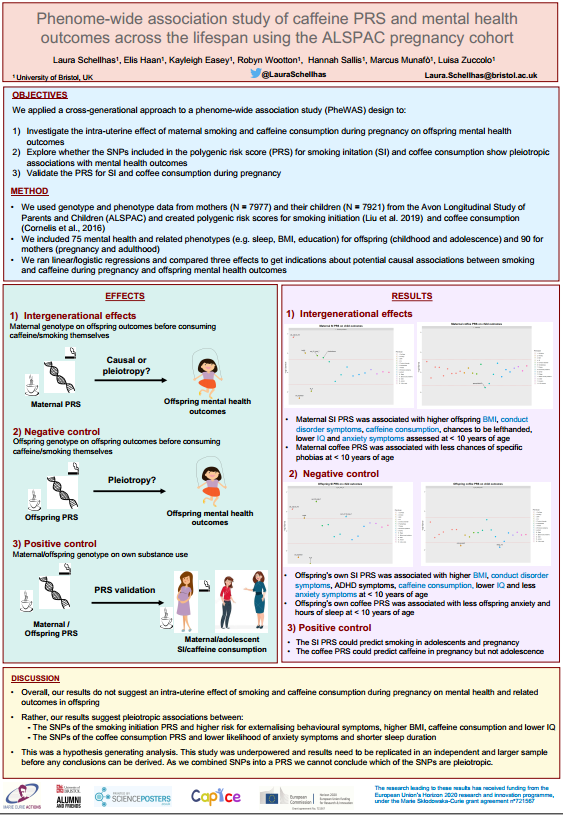
POSTER 2: "Maternal caffeine consumption during pregnancy and offspring cord blood DNA methylation"
Background
• Based on animal experiments and observational studies, UK guidelines advise pregnant women to limit caffeine consumption to less than 200 mg per day
• There is little robust evidence of a causal intrauterine effect on offspring health in humans
• Identifying a biological mechanism through which intrauterine caffeine exposure might affect offspring outcomes would strengthen the causal evidence base
• Therefore, we investigated associations between intrauterine exposure to caffeine and genome-wide DNA methylation in human cord blood
Read more in the picture below.
